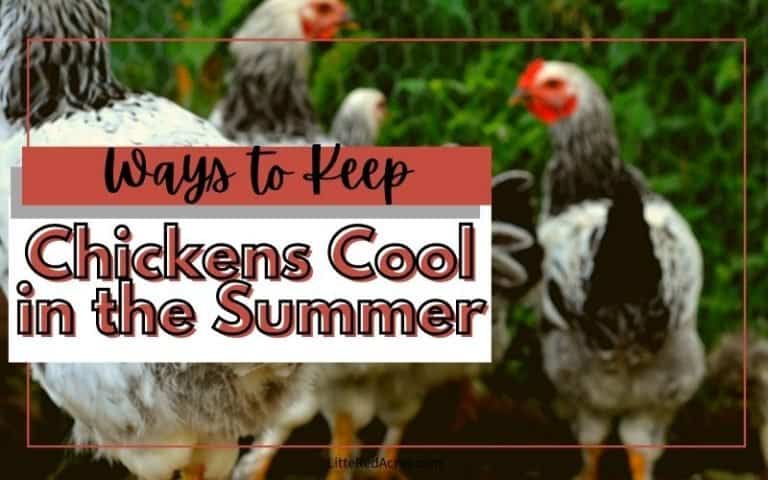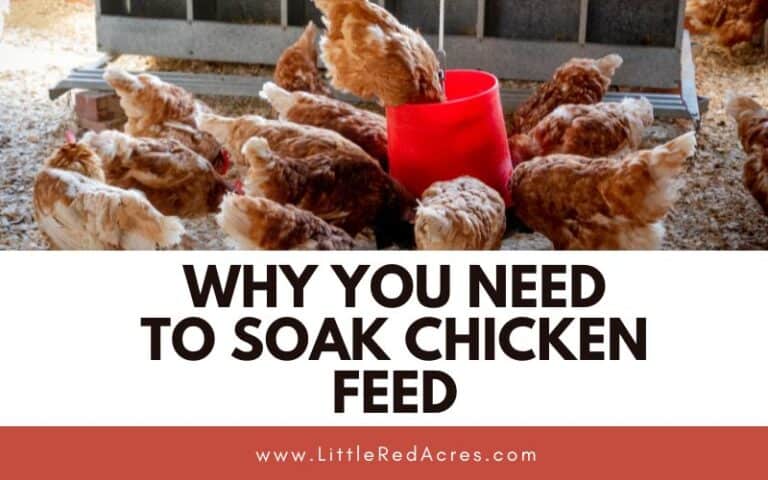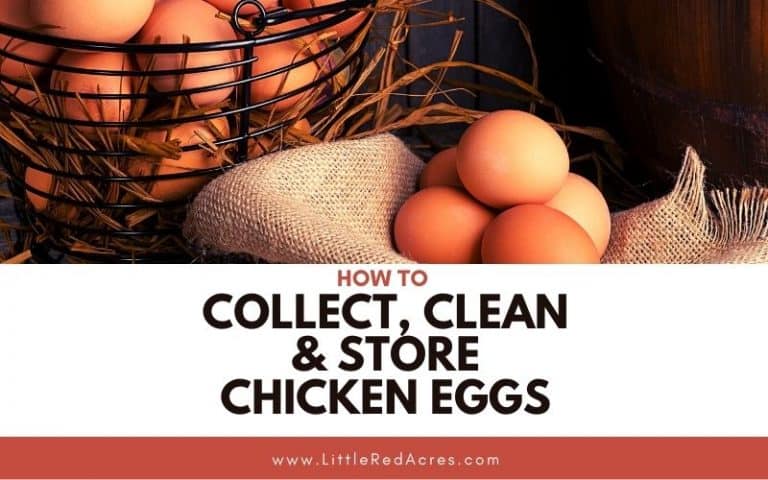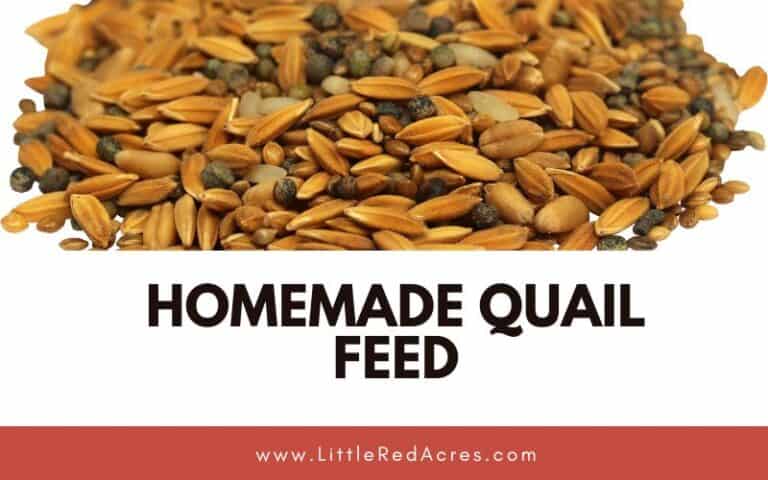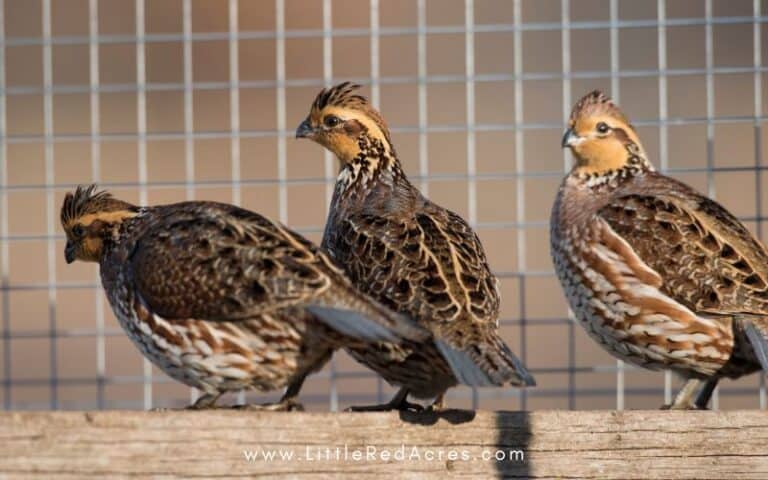Dealing with A Broody Hen
Inside: Is your hen being protective of her eggs? She's likely gone broody. A broody hen is a chicken that has become determined to hatch eggs.
If you've noticed one of your hens being protective or sitting on her eggs for long periods, then it's likely she's gone broody. A broody hen is a chicken that has become determined to hatch eggs.
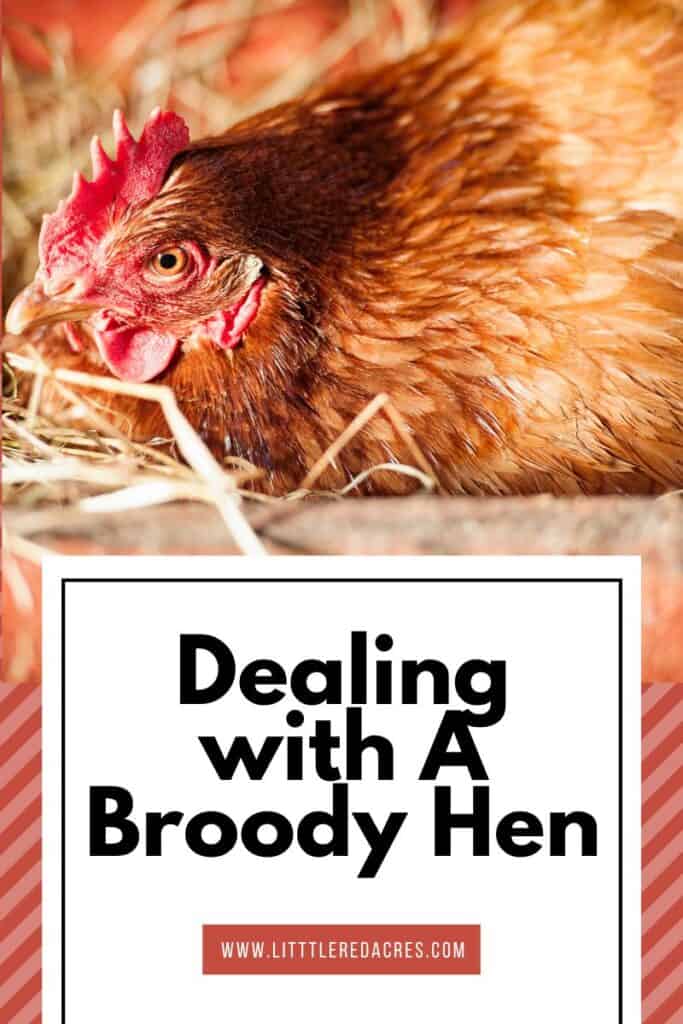
This post may contain affiliate links, see my disclosure policy for more information.
Broody Hen Behavior
Knowing how to deal with a broody hen is an important part of successful chicken-keeping. Not all breeds of chickens go broody. So it might not even be something you have to deal with depending on the breed of chickens you choose to raise.
Bantam breeds, silkies included, are known for their broody behavior and are often sought after for hatching and raising chicks without incubators and brooders.
Get updates & freebies delivered to your inbox!
How do you know your hen is broody? Signs of a Broody Hen:
- She will refuse to move from the nesting box
- She fluffs her feathers out to make herself look big
- Growling and pecking when you try to remove her from the nesting box
- Running back to the nest box after you've managed to remove her
- Plucking out her chest feathers
- She tries to steal eggs from other hens
A broody hen will leave the eggs for very short periods to get food and water, but as the eggs develop she'll leave less frequently.
She will turn the eggs multiple times a day. As she approaches day 21 she will start clucking to the eggs, this encourages them to start to pip and hatch.
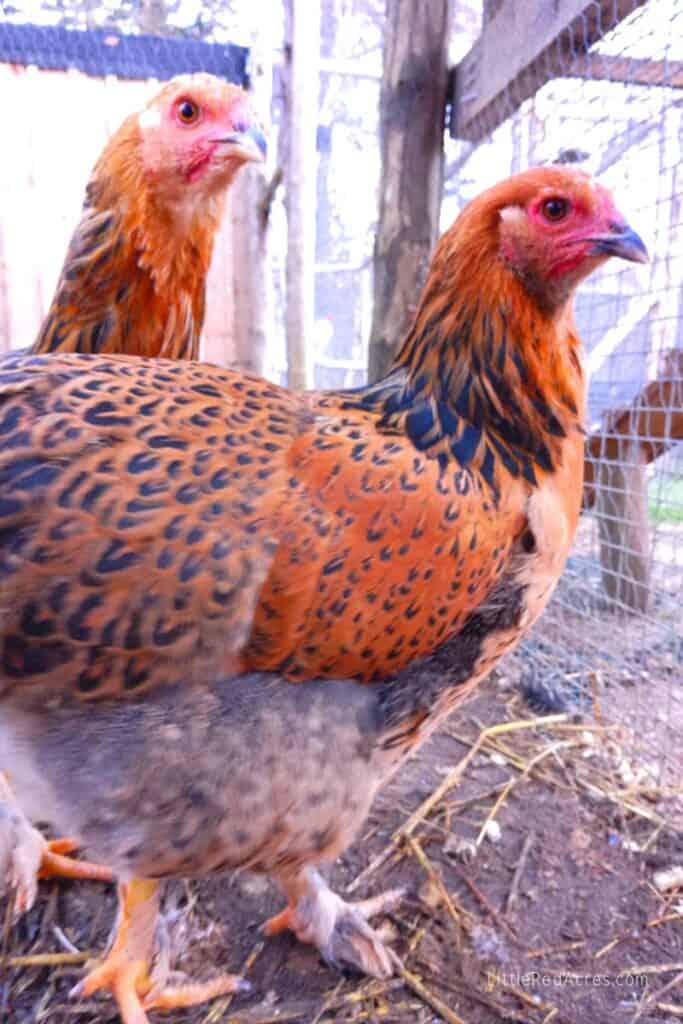
How Long Will A Hen Brood for?
Left unattended, a hen will stay broody for around 21 days, which is the time it takes to hatch a clutch of fertile eggs. After 21 days the behavior should stop at which point she will raise her young.
If you do not let her sit on eggs, she will keep trying to brood. Some hens “live” to hatch and it can seem impossible to break their broodiness.
It's important to keep an eye on your hens for this behavior because they will start to become unhealthy including losing more feathers, and their comb and wattles will become paler.
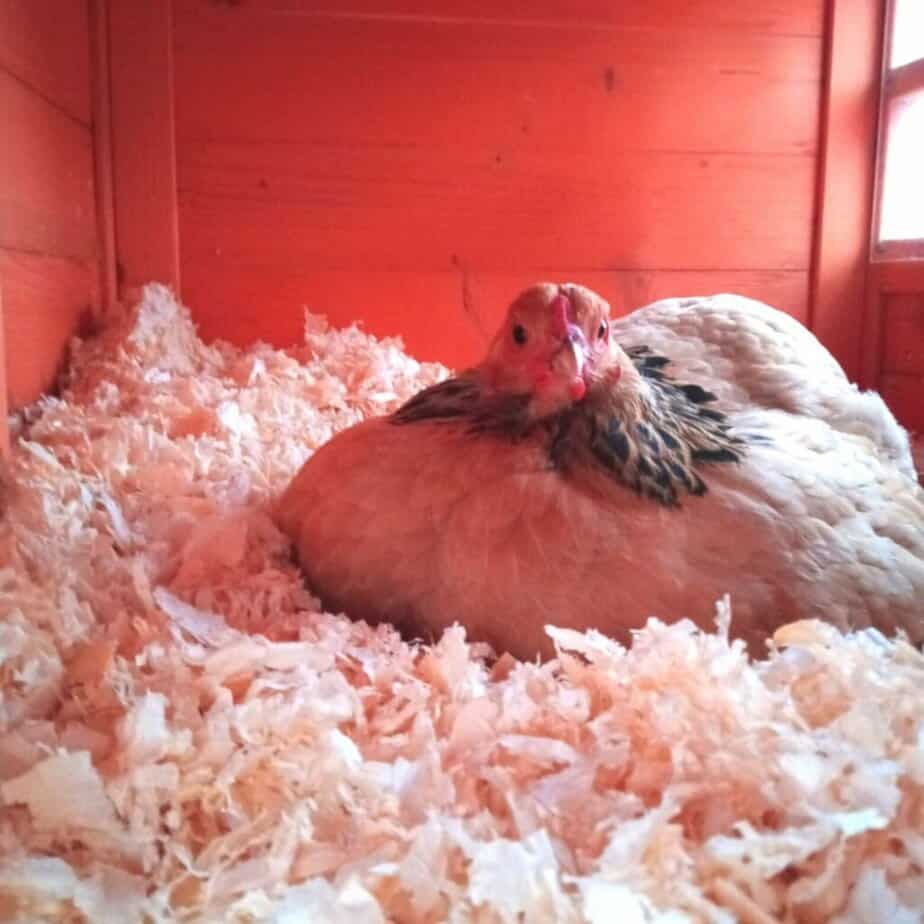
Tips for Dealing with Broody Hens
When a hen decides to incubate some of her eggs, she sits on top of them for a prolonged period, often raising her body temperature and consuming less food and water than she would ordinarily.
You need to make sure you provide them with access to sufficient food and water near their nesting box, usually by setting up a waterer and feeder.
Silkies and bantam breeds in general are famous for being broody hens. They will hatch just about anything and are good mothers as well.
If you want her to hatch out eggs then I recommend setting up a brooding pin or cage of some sort for her. Other hens can be mean to a broody hen while she sits on her eggs. Any other chickens in the coop may attack the chicks once they hatch. Including the roosters.
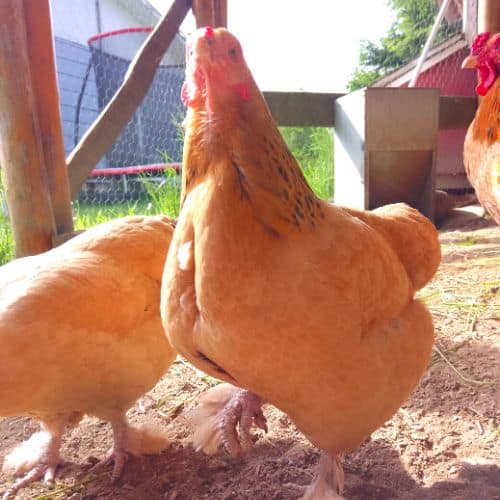
I keep a “maternity ward” cage, a rabbit hutch, in our main run so that all the birds can interact with each other and keep everyone safe. This way reintroducing the hen will go smoothly and even introducing the chicks to the flock after a while can go much smoother.
You do not have to let a hen stay broody. You can break their broodiness if you try hard enough. You might not want to hatch out chicks every time a hen goes broody. If you have a flock of chickens you probably want them to be laying eggs not just sitting on them.
Broody hens do not lay eggs. It can take a couple of after brooding for her to start laying eggs again.
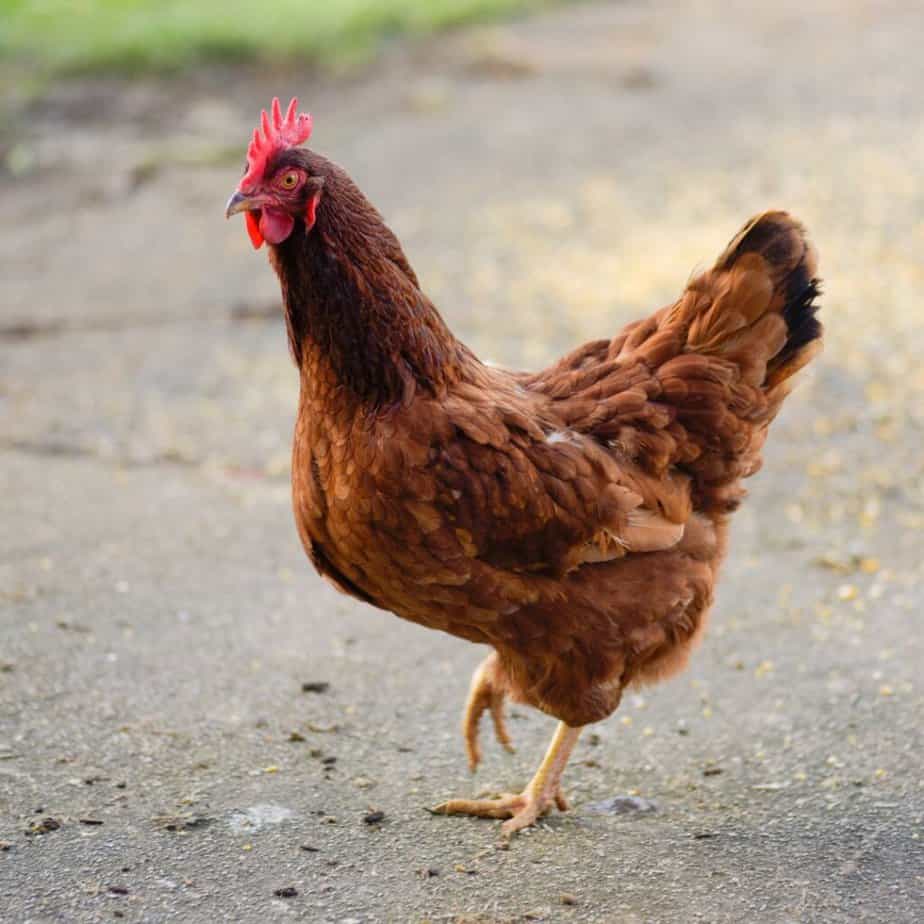
Chicken Breeds That Do Not Good Broody
As I mentioned above, not all chicken breeds are going to go broody. Some, such as the RIR have had it breed out of them and they are for egg-laying proposes now. There are a lot of people who don't want to hatch and raise chicks and just want a prolific egg layer.
- Barred Rock
- Sebright
- Faverolles
- Hamburgh
- Legbar
- Leghorn
- ISA Brown
- Polish
- Rhode Island Red
Frequently Asked Questions
Do broody hens lay eggs? Broody hens do not lay eggs while they are broody.
Can I move a broody hen and her eggs? You can move a hen and her eggs, which is often recommended to keep them away from others from the flock. However, you do run the risk of her deciding to not want to sit on the eggs anymore. Silkies are great when you move them.
Are Rhode Island Red chickens broody? Rhode Island Reds have been specifically bred for their egg production, meaning that broodiness has been mostly bred out of them.

Want More?
Bantam vs Standard Chickens: A Comprehensive Guide to the Differences
10 Best Chicken Breeds for Beginners

